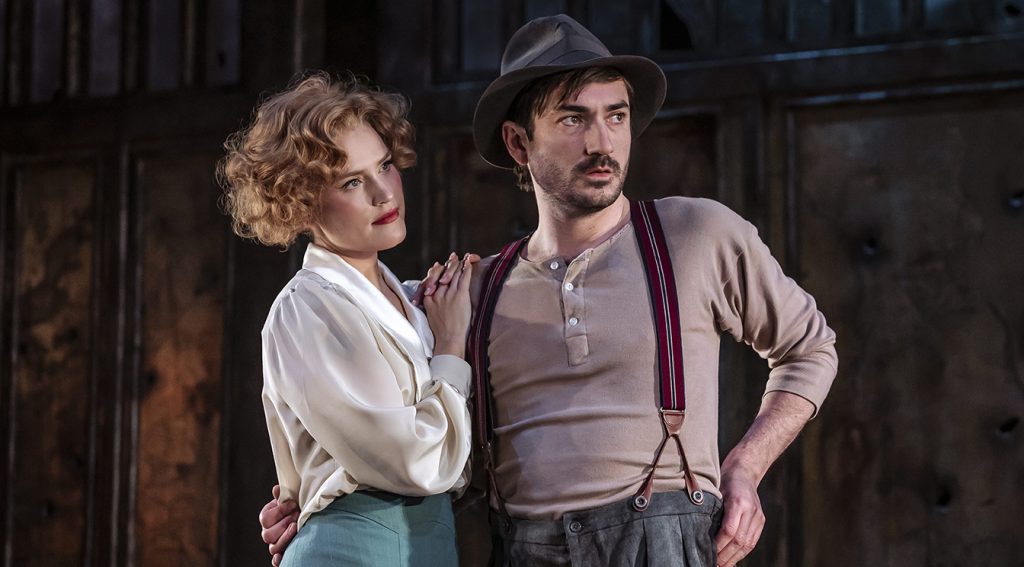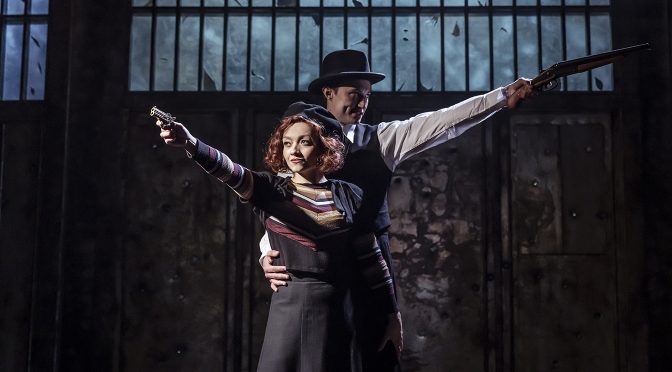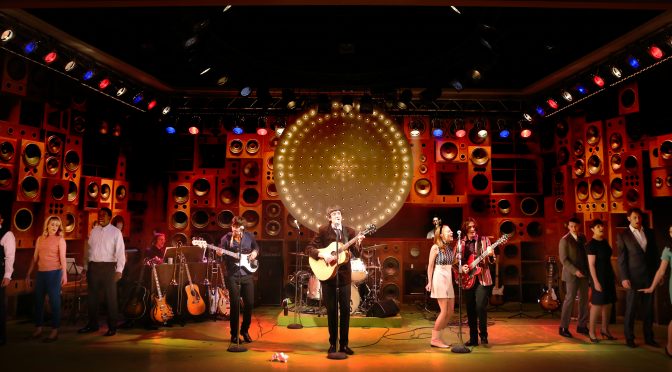Frank Wildhorn and Don Black’s score for this 2011 musical sounds exemplary. With consistently strong songs and smart lyrics, this is a show that can hold its head high. While not all the numbers feel as if they belong in a story about criminals – and the sense of time and place for these depression era degenerates isn’t convincing – there is barely a weak number to be heard.
The entire cast enjoys this solid material. The production has fine leads, with Frances Mayli McCann and Jordan Luke Gage taking the title roles. Given the stronger written part, Gage’s acting impresses. Director Nick Winston’s production is a quality affair. Although small, the venue feels appropriate for the show and the design from Philip Witcomb is neat, if far from lavish.

Problems arise with Ivan Menchell’s book and the characterisations here. Time spent on Bonnie and Clyde, looking at their motivations and insecurities, is rewarding. But secondary roles – Clyde’s brother and his wife, as well as a law man who holds a torch for Bonnie – are poor. The performers – George Maguire, Natalie McQueen and Cleve September – sound good, but the roles are written either too comic or too sincere. These issues are worse when it comes to the crime couple’s parents.
Such poor parts are an especial shame, since focusing on how others feel and are affected by Bonnie and Clyde is the show’s smart move. Taking criminals as your protagonists in any drama must be handled sensitively. This show generally avoids the danger, as aspirations for fame seem silly and both fall into violence in a convincingly chaotic fashion. If there’s a little too much sympathy for the gangsters, the show never leaves us in any doubt about how destructive they are. And it really does sound great along the way.
Until 10 July 2022
Photos by Richard Davenport


